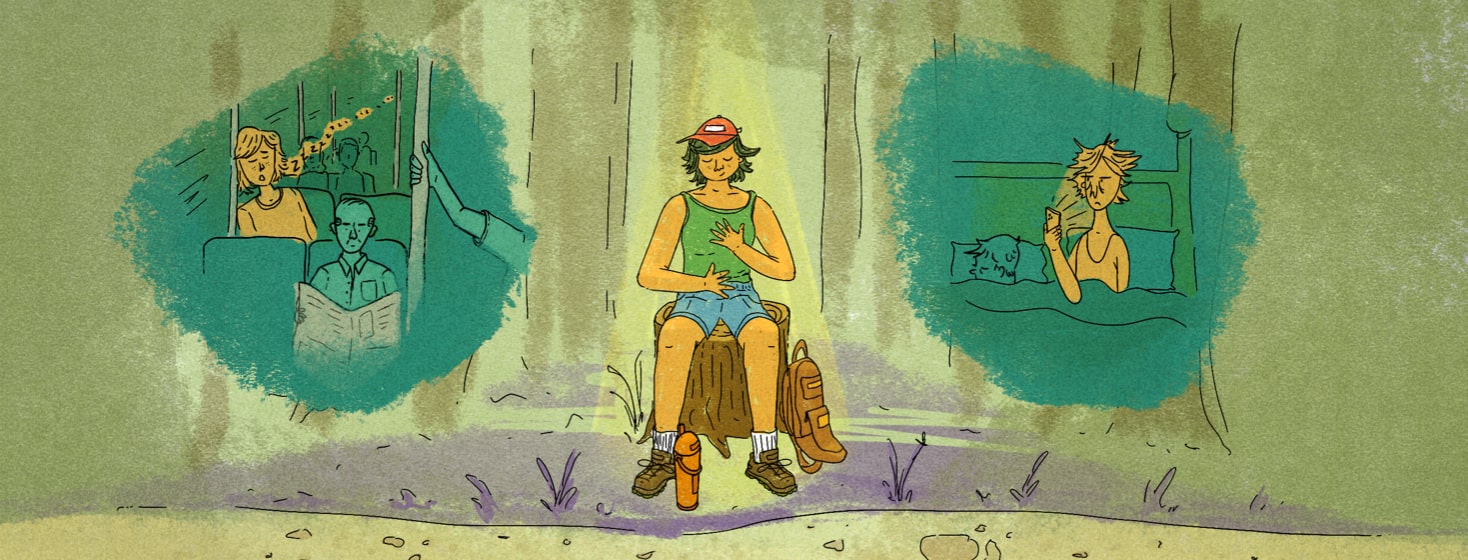Managing Stress and Narcolepsy: Part 2
This article is Part 2 of "Managing Stress and Narcolepsy." Read Part 1 here!
Narcolepsy isn’t often easy to live with. There are many symptoms that I experience that impact my daily life in a significant way. This can be stressful in itself, which doesn’t help because stress often makes my symptoms worse! It’s a brutal cycle.
Strategies for managing stress and narcolepsy
I can’t control my narcolepsy symptoms, or other stressful factors in my life, directly. However, there are a few techniques that I’ve learned to utilize to assist in relieving my stress. In doing so, I ensure that I do not have symptom flares due to stress.
It’s not helpful that in difficult situations, my narcolepsy symptoms can worsen. Anything I can do to help reduce my stress levels is worth the effort and keeps me healthier and happier in the long run.
1. Practicing unconditional acceptance
Practicing unconditional acceptance can be used to help decrease mental stress surrounding a situation that is inescapable.
For example, when falling asleep on the bus the other day, instead of berating myself mentally for experiencing sleepiness in public and trying to stay awake, I closed my eyes and let myself rest for a few minutes, accepting that I was tired and not trying to fight it anymore.
This is more of a meditation practice than a bid for a complete mindset change. I say that because living with narcolepsy is too difficult for me to completely accept all the time. However, I can use short meditation "sessions" to practice unconditional acceptance when experiencing undesirable narcolepsy symptoms.
2. Taking 'vacations'
Perhaps one of the best ways to relieve stress is through vacations! These don’t even have to be a full fancy getaway (although those are great, too). They can look like a trip to the ice cream parlor, a local public park, a farmers market, or even just getting a coffee and taking the time to look at the sky on the walk back home. It’s important for me to give myself little moments worth living for.
3. Spiritual practices
Spiritual practices have been used in many different cultures and times. They can look different for anyone. For me, a spiritual practice I use is hiking. (This doesn’t mean that everyone uses hiking as a spiritual practice — just that I know I do!)
It feels special to be connected to the trees, animals, plants, and even elements like the air whispering through the trees or the water running through a stream. When I feel connected, I feel at peace.
4. Self-encouragement
Difficult moments can be made more difficult with negative self-talk.
Little affirmations like "I can do this" can go a long way! When I am my own cheerleader, I am empowered.
5. Somatic practices
Somatic practices are forms of movement that use bodily awareness and attention to senses and sensations to stay present and mindful.1
For me, somatic practices include anything that gets me into my body by activating one or more of my senses. These can include things like massages, sports, aromatherapy, playing music, swinging on a swing set, rubbing lotion on my skin, warm baths, and anything else that feels grounding.
What are your favorite stress management techniques?
What are some of your favorite techniques for relieving stress?
How does excessive stress impact your symptoms?
Please feel free to share in the comments!

Join the conversation